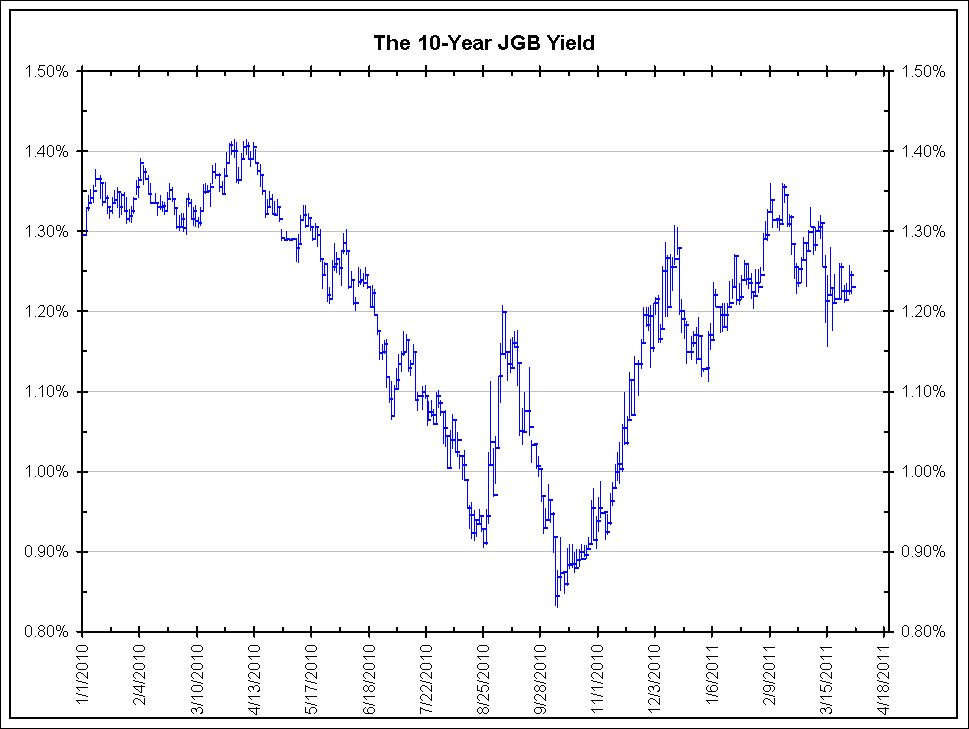Japan could use a dose of rising bond yields (The Financial Times)
Japan’s recent twin disasters have prompted questions about the country’s ability to issue new debt to raise money to rebuild its ruined towns and infrastructure. Japan already has an enormous fiscal deficit – what would happen if it issued even more government bonds (JGBs)? I would argue that by tapping domestic demand this would be accomplished with relative ease. Indeed, given the distribution of household savings, it might be in Japan’s long-term interest for bond yields to go up, rather than down. Right now, Japan, the largest creditor in the world, has a current account surplus. So when its budget deficit rises, private sector savings (those of households and companies) go up too. In other words, while rising bond yields add to the budget deficit, they also boost household interest income. Shifting yields simply transfer income between debtors and creditors (foreigners hold negligible amounts of JGBs). Overall wealth does not change in Japan, which is why the primary balance, the bit that is unaffected by interest payments, is important. As a result, deficit financing is relatively unaffected by interest rates.
>
Comment:
We argued quite the opposite recently in regards to the BOJ’s recent balance sheet expansion:
While this is positive for the markets for now, a rise in either real or expected inflation could change the story. However, our sense is that most portfolio managers do not see this as a real danger at the moment. The JGB chart below underscores this belief. One would expect rates to be rising as a result of this latest liquidity injection if inflation was a real fear.
Without any inflationary fears, Japan’s expansion of its balance sheet is extraordinarily bullish. If these fears ever do pop up, Japan will find that no amount of liquidity will help its economy/stock market.
Furthermore, as we argued on March 16, if JGB yields rise by an appreciable amount the BOJ would be that much more likely to sell some of their holdings of U.S. Treasuries as opposed to issuing their own debt.
>


